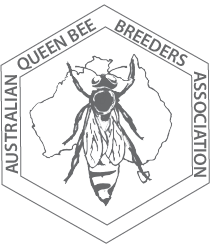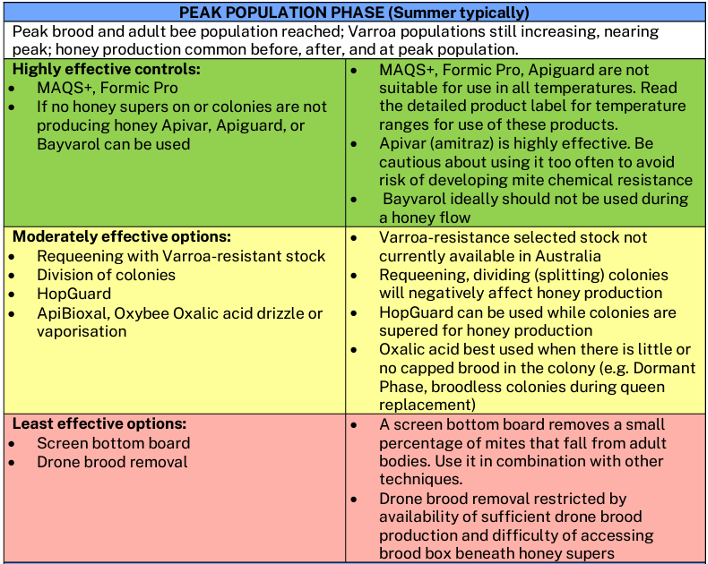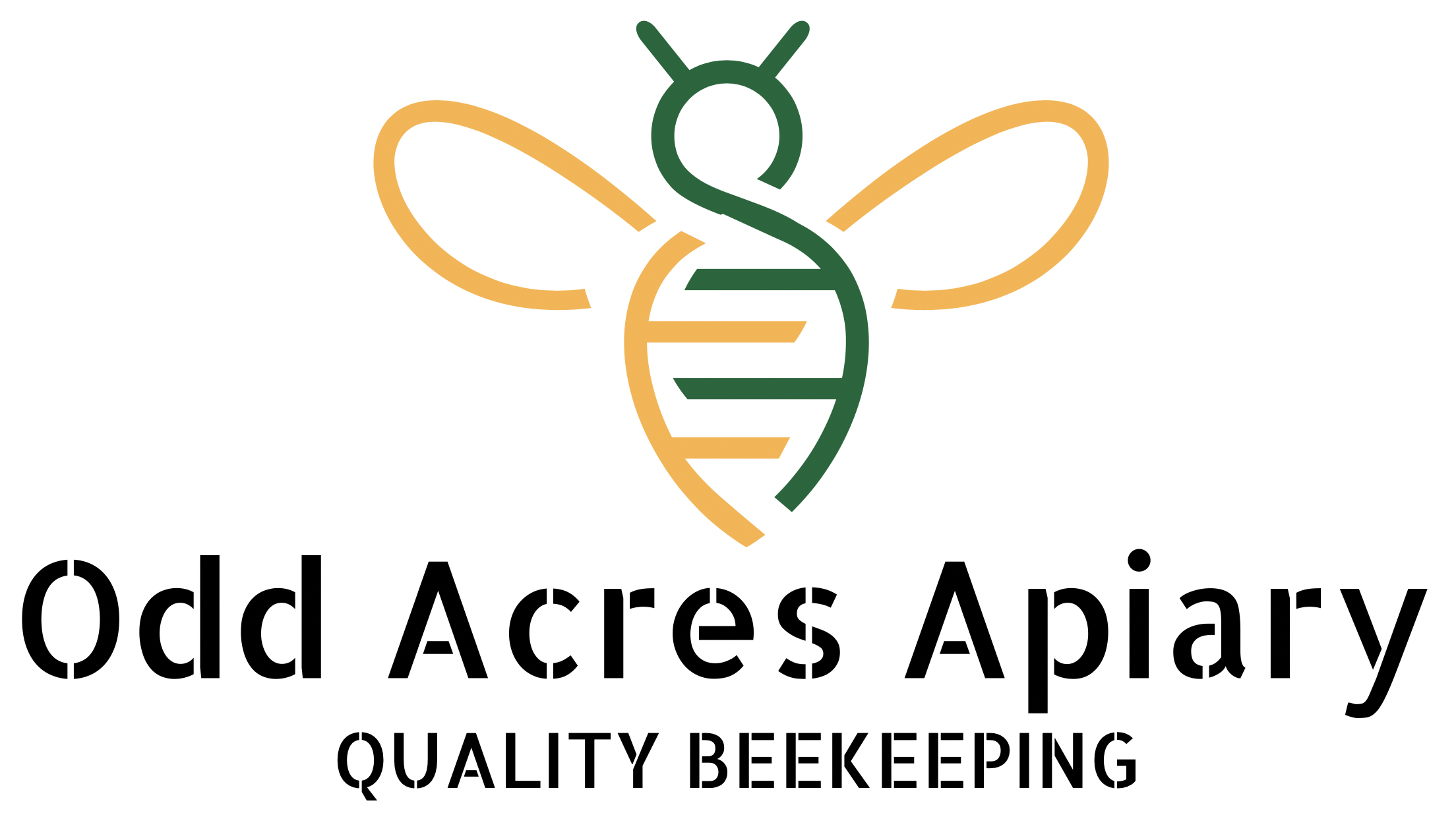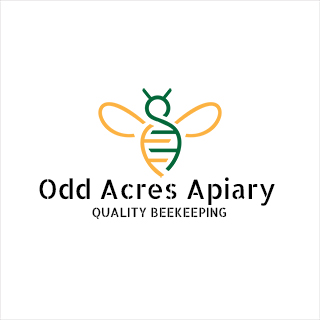
AQBBA December 2023 Newsletter
I write the regular newsletter for the Australian Queen Bee Breeders Association (AQBBA). I thought I would share the December 2023 issue here. If you are interested in joining the AQBBA, you can reach the web-site here. Membership is from $50.00 per year. There is a lot going on in the bee industry so it helps to spread information.
INTRODUCTION
As the Australian Honeybee Industry moves into a new year with Varroa we could ask ourselves if we are better informed? Are we prepared to tackle arguably the greatest threat to our industry in living memory? Can we effectively apply the information and experience gained around the world over the last thirty years to help us weather the coming storm? In one word – No!
At the start of the year, the NSW Government was going to “fight the mite” and would spend millions of dollars and multiple years in its eradication. Within about six months that strategy had been abandoned and a Transition to Management (T2M) approach would see our Industry left with little more than a shopping list of chemicals and further regulatory overhead – oh, and a heatmap portal! The haste with which the National Management Group (NMG) and associated Government bodies are exiting this emergency is almost unseemly and it has been particularly hard on queen bee breeders and producers. With AHBIC’s support, the AQBBA Management Committee presented a strategy and accompanying plan in September to the Consultative Committee on Emergency Plant Pests (CCEPP) that advises the NMG on all matters of the varroa emergency. We understand that the main concern from the CCEPP about the plan was the extended timeframe (approximately 3 years). The T2M (still to be released) is only funded for about twelve months with no information about why there is a 12 months deadline ?. Needless to say, our plan has had only limited support. Richard Sims continues to argue the case for the plan and we haven’t given up hope yet. The support that we have received (from the Queensland Government and Agrifutures) shows promise and we intend to make as strong a case as we can.
We all know that breeding varroa resistance is going to take time. We had hoped for more timely support to re-align capabilities and processes to establish breeding practices early that would quickly build on the knowledge and experience from around the world. The burden now falls on us – the breeders – to progress this in the first instance. That places a great deal of responsibility (unfairly) on the shoulders of our members. But – as I said earlier – we do have a couple of promising directions to pursue which we will discuss later in the newsletter.
But first – a message from our President, Richard Sims.
A MESSAGE FROM THE PRESIDENT
In my 40 plus years in the industry I can’t remember one with more turmoil and lack of information. The AQBBA has had some great Zoom presentations with more to come. The Zoom meeting with Bart Jan Farnhout was something I personally got a lot from and it would certainly be amazing if we could raise the funding to bring the Arista program to Australia. In the meantime Corinne Jordan through her own persistence and financial sacrifice has shown that a breeding program can be started within our own country , but this is going to takes years to achieve with so many factors that need to considered. It is not just a matter of breeding a bee that’s just resistant to varroa and DWV, they also need to have all the other traits that we expect for commercial outfits and amateur beekeepers’ requirements. The AQBBA executive has been involved in so many projects this year its hard to remember all, one of the bigger projects was submitting a proposal after a meeting with the QLD Agricultural Minister to gain funding for a National Queen Bee Breeding program that he believed in and gave credit to and is taking it to his Federal counterpart, so we are hoping that it will be adopted and the project will be able to be started sooner. We have also been working with the Victorian DPI on getting a workable permit to allow queen bees into the state so they can have access to early queens and larger amounts of queens, some head way has been made so hopefully we can agree on the final hurdle and things will change.
I would like to thank the executive for supporting the AQBBA and for our discussions on Facebook Messenger on which I think we achieve a lot. A big thankyou to Peter Czeti for all the emails and long hours he puts in.
So on behalf the AQBBA a MERRY CHRISTMAS to all our members and the rest of the industry .
Thanks, Richard Sims
AQBBA President
A CHANGE OF PLAN
In our previous newsletter, we introduced our plan as an association to combat Varroa based on the Russian Beekeeping Association model that has proven to be extremely successful in the United States. The plan had three main components – genetics, training and build-up:
- The genetics component of the proposed program depended heavily on queen importation. With the absence of deformed wing virus (DWV) in Australia and the substantial expense of the Post Entry Quarantine (PEQ) Mickleham facility, there is currently no appetite for importing any live bees (even single queens and escort bees) into Australia. For the time being, the AQBBA will continue to support the current UBeeO work as well as the initiative to import VSH certified drone semen from New Zealand. An interesting opportunity to collaborate with the Arista Bee Research Foundation in The Netherlands might provide an option to build on work already done overseas and replace the earlier strategy based on the model of the Russian Beekeeping Association.
- The T2M has committed to the extensive training of beekeepers in managing their colonies with various chemical treatments in the presence of varroa. Recently NSW DPI have released guidance on how this should be done in a section of their website called Managing your hives with Varroa. The DPI Primefact on the subject makes the assessment that “varroa resistant stock” is only ever rated as a “moderately effective” control (see figure below), though that makes no sense because it can’t even be considered a moderate control if it doesn’t exist! Unfortunately, it also illustrates that genetic resistance to varroa in bees is not being seriously considered. As such, training and useful advice to those interested in this “moderately effective” option will also suffer. Never-the-less, we will be trying to lobby AHBIC to change this view and have NSW DPI provide training information and a focus relevant to these controls, by updating the existing AgGuide series and other primeFacts and guides that address relevant techniques

3. Unfortunately the number of queen bee breeders in a position to make substantial progress on the subject of building varroa resistance in our stock remains very small. We need to have a larger pool of breeders who are prepared to do the research and offer their time to assist with such a program. The AQBBA Management Committee have been in communication with the Arista Bee Research Foundation in The Netherlands to discuss the possibility of forming an Oceania “branch” of the organisation. We think we might have the core of such a group but we welcome other experienced breeders to consider joining the group. You can contact the Secretary (either through the email at the bottom of the page, or directly on 0429 525 892) to discuss what this involves and whether you are prepared to make a 3-5 year commitment to the program.
The AQBBA Management Committee are busy re-drafting and updating this plan in light of feedback from CCEPP/NMG and AHBIC and a shift to a program building upon the Arista work. The Queensland Minister for Agriculture (who has a place on the NMG) is supportive of promoting the plan to his State and Federal counterparts with a view to establishing longer term funding to support the program nationally. Richard has also engaged with Agrifutures who have expressed an interest in discussing with the Management Committee how Agrifutures could assist with a nationally coordinated approach to breeding for varroa resistance. We hope to have this meeting with Agrifutures early in the New Year.
UBeeO PROGRESS
The Bee Genetics Varroa Resistant Breeding Project in Australia is progressing its efforts to develop a strain of honeybees that naturally resist Varroa mites. Findings to date confirm that Australia’s bee population has extremely low number of colonies exhibiting natural resistance to varroa . This is to be expected as they haven’t faced that form of selection pressure here in Australia.
To that end, in the search for genetics that exhibit varroa sensitive traits, the project has conducted over 400 uBee0 tests across NSW and QLD and identified ten potential colonies showing promise in conferring resistance to Varroa mites. Breeding and crossbreeding efforts have been initiated to create second-generation colonies exhibiting the desired resistance.
As with anything to do with queen bee breeding in Australia at the moment, financial resource limitations and bee biosecurity border closures continue to challenge the implementation of the program and inter-state collaboration. At the moment, the project remains privately funded, and the generosity of collaborating beekeepers providing resources and financial assistance has enabled the project to continue and expand together with consultation with research institutions and industry experts. This is a remarkable demonstration of how like-minded AQBBA members and their supporters can make a difference. But progress is slow and the rollout will be protracted without further support. If you wish to support to the program or understand it more, get in touch with the Secretary who can put you in touch with Corrinne Jordan-Ivers – the program director.
ARISTA BEE RESEARCH
Recently, the AQBBA hosted a member-only webinar with the Arista Chairman, Bartjan Fernhout.
Arista Bee Research collaborates with various institutions, including the United States Department of Agriculture (USDA), the Kirchhain Bee Institute and the Hohen Neuendorf Bee Institute in Germany, and Wageningen University in the Netherlands. The foundation has achieved substantial success in the breeding of honeybees capable of detecting and disrupting the varroa mite life-cycle sufficiently to remove it as a concern in their colonies. This is achieved through the encouragement of hygienic behaviour that supresses mite reproduction in brood through the removal of infested brood, thereby halting Varroa offspring production.
Arista Bee Research operates as a non-profit organization and relies on donations and support to continue its vital work in protecting and strengthening honeybee populations against Varroa. The foundation’s breeding program, which began in earnest in 2014, aims to integrate hygienic traits more broadly into the honeybee population. This involves creating small colonies with queens artificially inseminated with a single drone (as opposed to multiple drones) to ensure consistency in inherited traits. The ultimate goal is to select towards 100% hygienic behaviour in the European Union (EU) breeding stock, after which normal sized, multi-drone colonies will be created and tested for other important traits like honey production, gentleness, and swarming tendency. For those not familiar with single drone insemination techniques, have a look at the article at the US Department of Agriculture website – https://www.ars.usda.gov/ARSUserFiles/64133000/PDFFiles/301-400/370-Harbo–The%20Value%20of%20Single-Drone.pdf .
From AQBBAs perspective, the Arista program might be a useful replacement to our earlier proposed Russian bee program. It has the major advantage of not requiring queen bee importation and it would integrate will with our existing UBeeO and drone semen importation initiatives. Participation is not free – but nor is it overly expensive. We are organising a working group with Arista early in the New Year to explore the full funding implications and sources of funds in Australia. For further information on the Arista program go to https://aristabeeresearch.org/ . Again as mentioned earlier, if you are an AQBBA member, an experienced breeder and you wish to participate in the program please contact our Secretary.
PLAN BEE
Most of our members and the recipients of previous issues of this newsletter will know that Plan Bee is in its final stages. Off to a rocky start with sensitivities of how it would participate alongside commercial breeders in distributing breeding stock – then to have problems around its genetic testing program with a contractor who couldn’t deliver to specification, Plan Bee was then stifled by the twin impact of Covid19 and the varroa emergency. It will end in April 2024 having delivered very little beyond its original breeding manual (though I think Version 2 is about to be released) and some surveys and reports. It is a shame that there is little interest to re-energise the program and use its existing resources to help with the challenges facing queen bee breeders in areas that would be directly helpful in breeding for varroa resistance. But then, this just confirms the lowly priority placed on the strategic well-being of our industry from Australia’s agriculture leadership (the NMG) generally – and the NSW Government in particular. Plan Bee will be remembered as a promising initiative, but one that failed to meet expectations and likely a missed opportunity given the current state of the T2M planning.
ENDORSED BREEDER PROGRAM
Again – I have to report that unfortunately our Endorsed Breeder Program has not progressed. We continue to press BQUAL and ask for your patience as we try to get this important initiative established.
MEMBERSHIP
Our Membership year runs from 1st April to 30th March. Membership remains at $50 per year. Please consider supporting AQBBA if you are not already a member. As a member your contribution will be much appreciated. Follow the link for membership payment https://aqbba.org.au/membership If you wish to pay by bank transfer, please fill out the Membership Form attached to this newsletter.
We continue to actively update the Facebook page for AQBBA at https://www.facebook.com/aqbba

